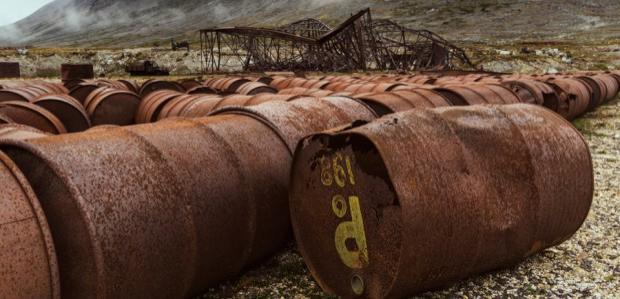
OIL MARKET OVERSUPPLIED

Global oil supply is continuing to increase faster than demand in a trend unlikely to be reversed next year, Total CEO Patrick Pouyanne said Monday.
"The market is oversupplied and production capacity will continue to grow because a lot of projects were sanctioned in 2013 and 2014," Pouyanne told reporters on the sidelines of the International Petroleum Technology Conference in Doha.
The bulk of those upstream oil projects would come on-stream in 2016 and 2017. As a result, the international market would remain oversupplied in 2016, he said.
"We need to exit from this momentum where we have many projects coming on stream," Pouyanne said. "We don't expect a [price] recovery in 2016."
Global crude and condensate output capacity this year was expected to rise by 1.7 million-1.8 million b/d in total from the 2014, marking one of the two biggest annual increments of the past decade, he said.
The growth in upstream liquids capacity additions might slow to about 1.2 million b/d, but at that level would still outstrip relatively sluggish expectations for demand to pick up.
OPEC met Friday in Vienna, but failed to agree on an overall crude output ceiling, rolling over the current policy based on the 30 million b/d ceiling in place since January 2012.
However, oil supply from outside OPEC should start to contract from mid-2016 due mainly to slowing US output, Pouyanne added.
Total, like most oil producers worldwide, was responding to the prolonged period of low oil prices with efforts to improve operating efficiency.
"We spend too much money in this industry. It's just a question of refocusing priorities," Pouyanne said. "The industry, clearly, after six to seven years of very high prices, we lost some of our focus on costs, so we have to refocus. We can do it."
For instance, he said he expected Total to cut 15% from its operating costs in Qatar this year for total saving of over $1.2 billion.
The company's operations in Qatar include about 25,000 b/d of oil production from the al-Khalij offshore field and major equity stakes in the Qatargas 1 and 2 and Dolphin Energy projects, which produce gas from Qatar's massive North Field for export as LNG and by pipeline.
It also has a 10% interest in Qatar's Ras Laffan condensate refinery as well as stakes in petrochemicals joint ventures.
US OUTPUT SLOWING
ConocoPhillips CEO Ryan Lance told reporters on the conference sidelines that US oil output was currently running at around 9.1 million b/d, after peaking for the year at 9.5 million b/d in May.
That meant about 500,000 b/d of US oil supply would be removed from the market this year, he estimated, with a further 500,000 b/d shrinkage expected in 2016.
Lance said that whereas US shale oil producers had achieved major efficiency gains in the past few years, he saw efficiency gains across the global petroleum sector in response to the current market environment.
"We're attacking all across the industry, trying to get our margins back," he said.
Portraying a more accelerated outlook for oil market re-balancing than Pouyanne, Saudi Aramco CEO Amin Nasser told conference delegates that less incremental oil was coming to market this year than last.
"The supply/demand balance will adjust, starting in 2016," he said.
ARAMCO KEEPS SPENDING
Aramco was continuing to invest in upstream projects expected to bring incremental crude production capacity on stream in the near term, as well as in major refining and petrochemicals projects including its Sadara joint venture with Dow Chemicals and Petro Rabigh joint venture with Sumitomo, Nasser said.
Start-up of the first production facilities at the $20 billion Sadara petrochemicals complex at Jubail is expected later this month or in January 2016, he said.
The complex is the largest single-phase petrochemicals plant ever built, with 26 process plants producing over 3 million mt/y a year of products.
PetroRabigh was expected to start up in 2016, he added. The joint venture launched engineering, procurement and construction tenders for three new units in October.
Construction is expected to begin in the second half of 2016.
"We need more energy. Oil and gas will be a significant part of the energy mix for the long term," Nasser said.
-----
More:



